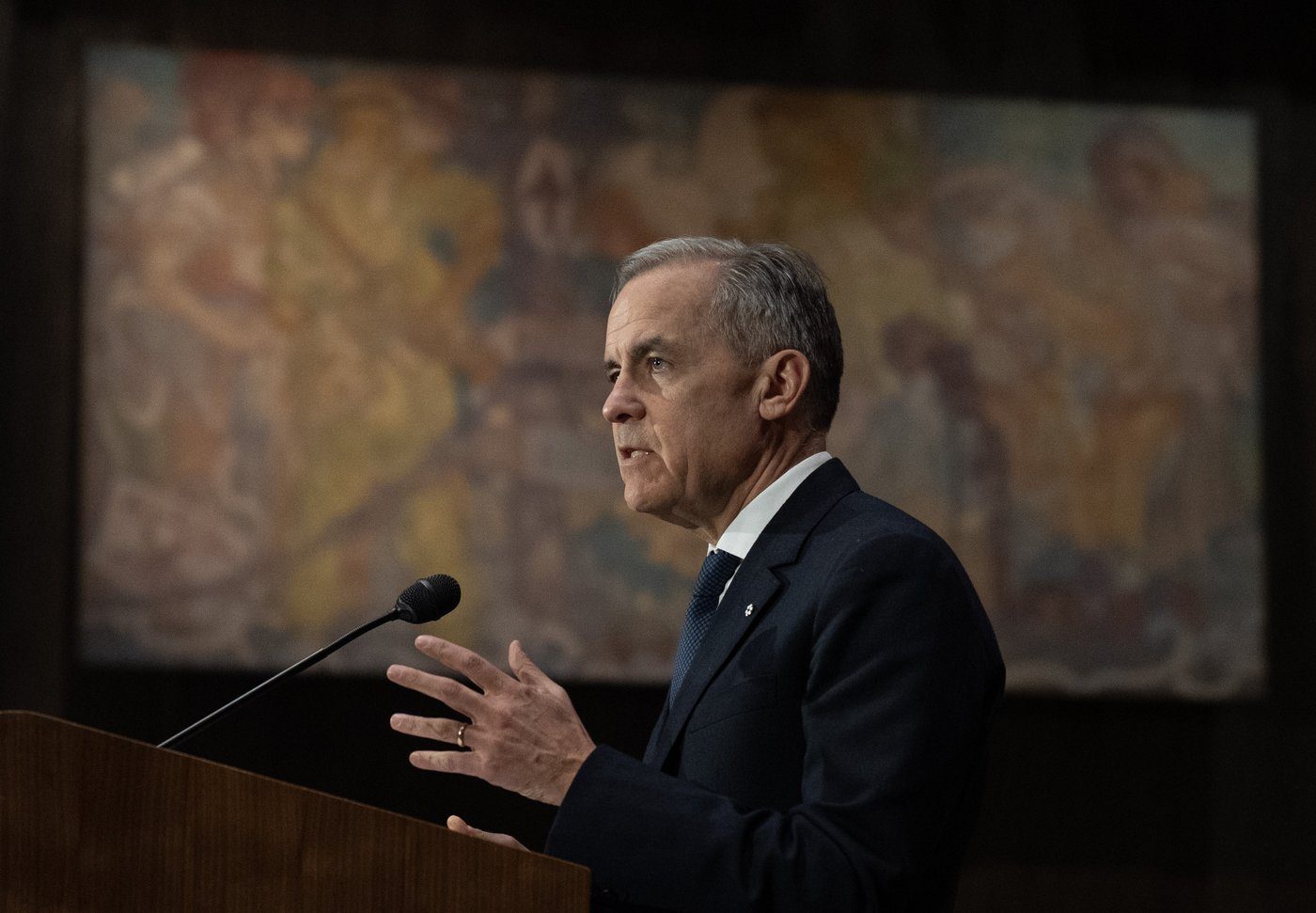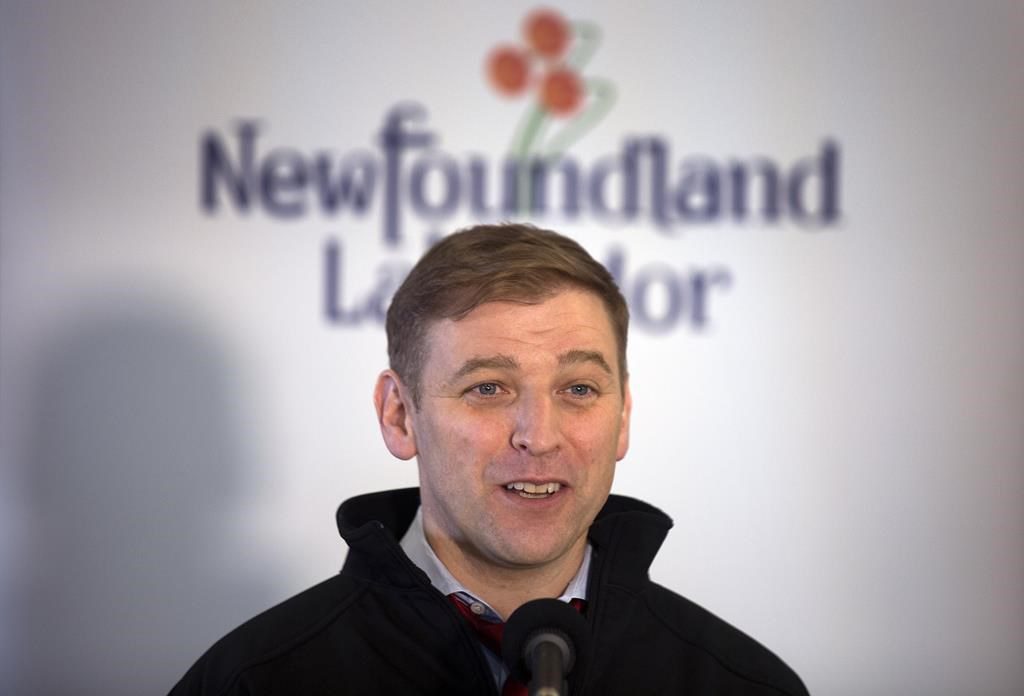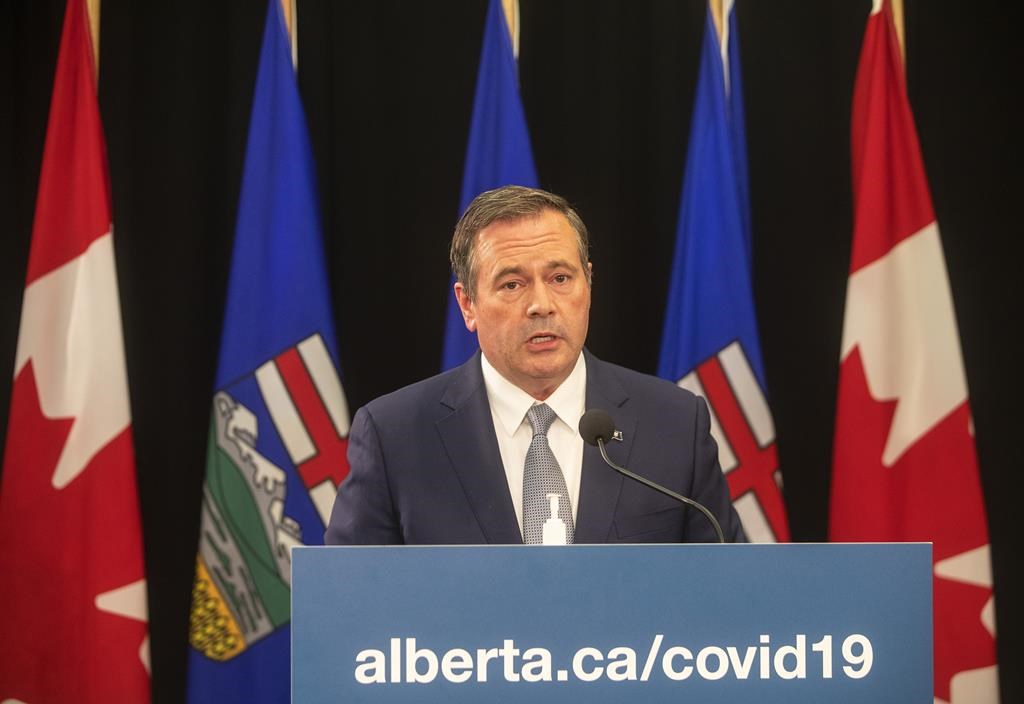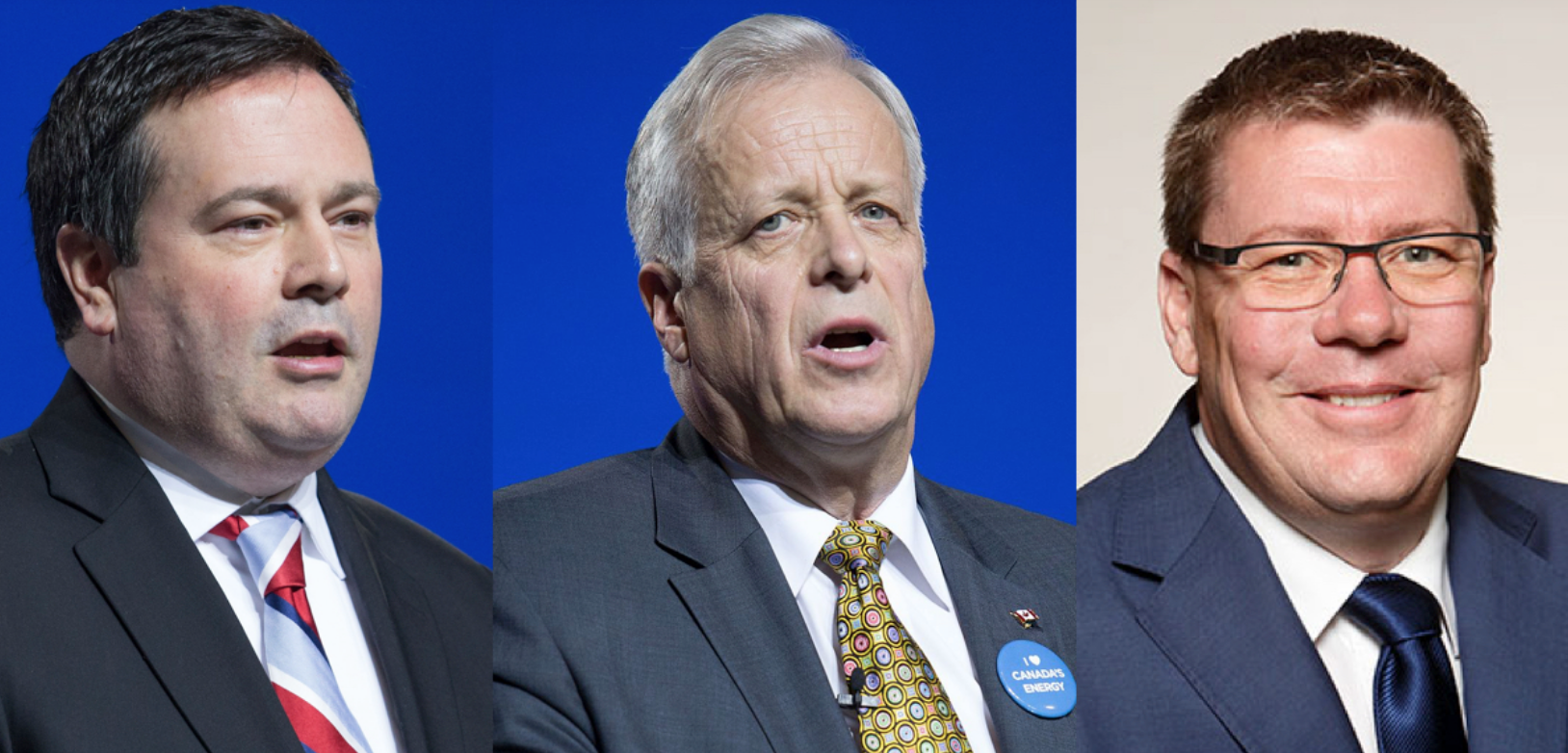This content is restricted to subscribers

The views, opinions and positions expressed by columnists and contributors are the author’s alone. They do not inherently or expressly reflect the views, opinions and/or positions of our publication.

This content is restricted to subscribers
The views, opinions and positions expressed by columnists and contributors are the author’s alone. They do not inherently or expressly reflect the views, opinions and/or positions of our publication.

Prime Minister Justin Trudeau’s carbon tax consensus within his Liberal party is collapsing.
Newfoundland and Labrador’s Liberal premier, Andrew Furey, might end up being the man who finally takes down the Trudeau carbon tax.
After months of trying to get Trudeau to be more flexible on the carbon tax, Furey has come out against the policy altogether.
Let’s look back at how this came to be.
It’s no secret that opposition to the Trudeau government’s punishing carbon tax was strong early on and has been growing ever since.
But a large chunk of that opposition was concentrated among conservative politicians.
Premiers like Doug Ford in Ontario, Blaine Higgs in New Brunswick and Scott Moe in Saskatchewan have all been calling on the Trudeau government to scrap the federal carbon tax since they came to power in 2018.
But until recently, Trudeau had the tacit support of most Liberal politicians at all levels.
As Trudeau has hiked his carbon tax further and further, Liberal politicians couldn’t keep selling the scheme, especially for constituents who don’t live in tiny condos in downtown metropolises.
The federal carbon tax now costs drivers 17 cents per litre at the gas pump and homeowners with natural gas are paying than $300 this winter. The federal government plants to keep raising the carbon tax until 2030, so it’ll only get worse.
Over the past year, Furey, Canada’s lone Liberal first minister, has gone from supporting Trudeau’s carbon tax to becoming an outright antagonist.
Last year, Furey called on the federal government to stop charging the carbon tax on home heating oil, which a large percentage of Newfoundlanders and Labradorians use to heat their homes.
Soon thereafter, Newfoundland and Labrador Member of Parliament Ken McDonald courageously voted to repeal the federal carbon tax and nearly launched a rebellion in the Liberal caucus among Atlantic Liberal MPs. In response, Trudeau carved out a carbon tax exemption for home heating oil for the next three years.
But Furey wasn’t satisfied.
In the lead up to the Trudeau government’s 2024 carbon tax hike, which occurred on April 1, Furey signed an open letter to Trudeau calling on the federal government to cancel its planned hike. Six other premiers joined him in that effort.
Yet Trudeau was defiant and let the 23 per cent carbon tax increase go ahead.
That’s when Furey threw down the gauntlet.
In a letter to Trudeau, Furey declared openly what the vast majority of Canadians already know: the carbon tax is the wrong approach when it comes to protecting the environment.
Unlike Canadians living in downtown Toronto or Vancouver, with tiny condos and easy access to public transit, Furey notes Newfoundlanders and Labradorians can’t still need to drive to work and heat their homes no matter how high the carbon tax goes.
The idea behind the carbon tax is that as prices get too high, consumers change their behaviour and use less carbon intensive methods to heat their homes and get to work.
But those living in rural Canada can’t hop on the subway or rely on a heat pump.
Furey notes in his letter that for many, “there are no alternatives available.” So, if Trudeau’s goal is to use the carbon tax to lower emissions, that goal “is not being achieved at this time.”
Furey concludes: “We need a constructive approach to decarbonize our environment without placing the burden on individual families who simply do not have viable alternative options.”
Furey is calling on Trudeau to convene an emergency meeting of Canada’s premiers to search for alternatives to the carbon tax.
Seventy per cent of Canadians opposed Trudeau’s carbon tax hike on April 1. It’s a good bet that number will keep going up every time the tax goes up. Furey is right to point out that obvious reality and the prime minister should listen.
Jay Goldberg is the Interim Atlantic Director of the Canadian Taxpayers Federation
The views, opinions and positions expressed by columnists and contributors are the author’s alone. They do not inherently or expressly reflect the views, opinions and/or positions of our publication.

Become a subscriber today!
Register
Danielle Smith became United Conservative Party of Alberta leader on Oct. 6, and the province’s 19th premier five days later. In less than a month, she’s already shown that she’ll defend certain ideas and principles to help create a stronger, freer Alberta.
The most recent issue has been school mask mandates.
“The detrimental effects of masking on the mental health, development and education of children in classroom settings is well understood,” Smith said in an Oct. 29 statement, “and we must turn the page on what has been an extremely difficult time for children, along with their parents and teachers.”
Quite a few Albertans were pleased to hear the new Premier was opposed to any further masking mandates in the province’s K-12 education system. She also said legal steps would be taken in this matter. This follows a recent Court of King’s Bench decision that Alberta had acted “unreasonably” when then-Premier Jason Kenney lifted a school mask mandate last winter. Smith evidently wants to ensure her pledge doesn’t get challenged or overturned at a later date.
Does every Albertan agree that school mask mandates should be eliminated? Of course not, and a new round of attacks on Smith’s leadership has begun.
Not that she expected anything different.
As I’ve written in several publications, I’ve known Smith for over 25 years. She was working for the Fraser Institute when we first met, and I was running my nationally-distributed conservative commentary newspaper, From The Right. We both got involved in politics, radio/TV punditry and column writing at roughly the same time, as it happens.
Through it all, she’s used her intelligence, wit and political savvy to become a powerful voice in politics, radio and think tanks. She strongly supports private enterprise, free markets and economic liberty. She’s a libertarian, social moderate and policy wonk rolled up into one. She will always defend her friends and allies, but believes in building bridges with opponents and critics to ensure that intellectual discourse is preserved – and the lines of communication remain open.
Smith is also unafraid to stand up for Albertans. Case in point, her support for an Alberta sovereignty act.
This idea was originally conceived by the Free Alberta Strategy, a joint initiative between the Alberta Institute and former UCP MLA Rob Anderson. The policy proposal, which was jointly written by Anderson, University of Calgary Professor Barry Cooper, and lawyer Derek From on Sept. 28, 2021, depicted the sovereignty act as a “cornerstone” policy. More specifically, it would provide the Alberta legislature “with the authority to refuse enforcement of any specific Act of Parliament or federal court ruling that Alberta’s elected body deemed to be a federal intrusion into an area of provincial jurisdiction, or unfairly prejudicial to the interests of Albertans.”
Smith, in a July 20 tweet, noted that her version of the sovereignty act would “empower the Alberta Legislature to refuse enforcement of any specific Federal Government law or policy that violates Alberta’s provincial rights under s.92 of the Constitution or the Charter of Rights and Freedoms of Albertans.” Moreover, it would only be invoked after a “free vote” of all Alberta MLAs.
The act is controversial, and goes against Canada’s current constitutional framework. At the same time, it’s a sensible nod to having more economic freedom in Alberta – and more control over Alberta’s political destiny. My belief at the time was that other premiers could end up agreeing with Smith’s sovereignty act in principle, and join with her one day. There’s strength in political numbers, after all.
Saskatchewan’s Scott Moe may have done this in a light fashion with his recent white paper, Drawing the Line: Defending Saskatchewan’s Economic Autonomy. “A strong Saskatchewan means a strong Canada,” he said in a recent statement, “but we cannot allow continued federal intrusion into our exclusive constitutional right to develop our natural resources and grow our economy. We will defend and protect Saskatchewan jobs and our economic future.”
A spokesperson in Smith’s office would tell the Epoch Times on Oct. 27, “It’s great to see other provinces-like Saskatchewan, follow Alberta’s lead in defending provincial existing constitutional division of powers. It’s no secret this is a top priority for our government and we hope to continue to see other jurisdictions do the same.”
Could the same scenario happen with school mask mandates? It’s possible.
Scientific and medical studies may have produced different results on the use or non-use of school masks in classrooms, but the overall policy definitely had an effect on the mental health and well-being of school-aged children. A March 2022 poll conducted by POLITICO and Harvard T.H. Chan School of Public Health found that 46 percent of respondents believed masking hurt their children’s social learning and interactions.” They also believed masking hurt their children’s “general schooling experience” (40 percent), mental/emotional health (39 percent) and education (33 percent).
Like it or not, Smith’s opposition to further mask mandates in Alberta has merit. Plenty of parents in other provinces would likely agree with her stance. So would some or all of our premiers. If the latter group decides this idea and principle needs to be defended, they may join her in this legal fight against school mask mandates to help create a stronger, freer Canada.
Smith’s first month as Alberta Premier has been intriguing. Who knows what the next month could bring?
Michael Taube, a long-time newspaper columnist and political commentator, was a speechwriter for former Canadian prime minister Stephen Harper.
The views, opinions and positions expressed by columnists and contributors are the author’s alone. They do not inherently or expressly reflect the views, opinions and/or positions of our publication.

Become a subscriber today!
Register
This content is restricted to subscribers
The views, opinions and positions expressed by columnists and contributors are the author’s alone. They do not inherently or expressly reflect the views, opinions and/or positions of our publication.

This content is restricted to subscribers
The views, opinions and positions expressed by columnists and contributors are the author’s alone. They do not inherently or expressly reflect the views, opinions and/or positions of our publication.

This content is restricted to subscribers
The views, opinions and positions expressed by columnists and contributors are the author’s alone. They do not inherently or expressly reflect the views, opinions and/or positions of our publication.